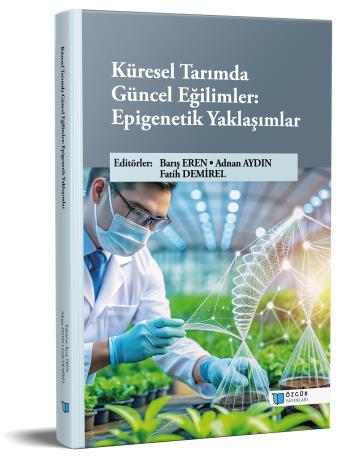
The Role of Epigenetic Mechanisms in Shaping Future Weed Science and Control Strategies
Chapter from the book:
Eren,
B.
&
Aydın,
A.
&
Demirel,
F.
(eds.)
2025.
Current Trends in Global Agriculture: Epigenetic Approaches.
Synopsis
Weed science is undergoing a paradigm shift as advances in molecular biology reveal the complex regulatory layers that contribute to weed adaptation and persistence. Among these, epigenetic mechanisms, including DNA methylation, histone modifications, and small non-coding RNAs, are emerging as key regulators of stress responses, phenotypic flexibility, and the evolution of resistance. Unlike genetic mutations, epigenetic modifications are reversible and dynamic, enabling weeds to respond rapidly to fluctuating environmental conditions such as herbicide exposure, drought, salinity, or nutrient limitation. Recent research suggests that epigenetic regulation may mediate herbicide resistance by enhancing detoxification pathways via cytochrome P450s and glutathione transferases, or by altering the expression of target-site genes. Furthermore, epigenetic stress memory facilitates the transgenerational inheritance of adaptive traits, enabling offspring to survive the stresses resulting from repeated agricultural practices. This adaptive flexibility poses a challenge to traditional weed management strategies, which often rely on predictable genetic resistance models. However, these insights also open new avenues for innovation. Epigenome editing tools such as CRISPR/dCas9, when combined with epigenetic effectors, can be used to manipulate gene expression without altering DNA sequences, offering the potential for targeted suppression of resistance mechanisms. Furthermore, integrating epigenetic biomarkers into predictive models can enable early detection of resistant populations and guide site-specific management. As agricultural systems transition toward sustainability, understanding and leveraging epigenetic processes will be critical for designing more effective, adaptable, and environmentally friendly weed control strategies. Therefore, incorporating epigenetics into weed science represents not only a frontier of basic research but also a practical framework for shaping the future of integrated weed management.

